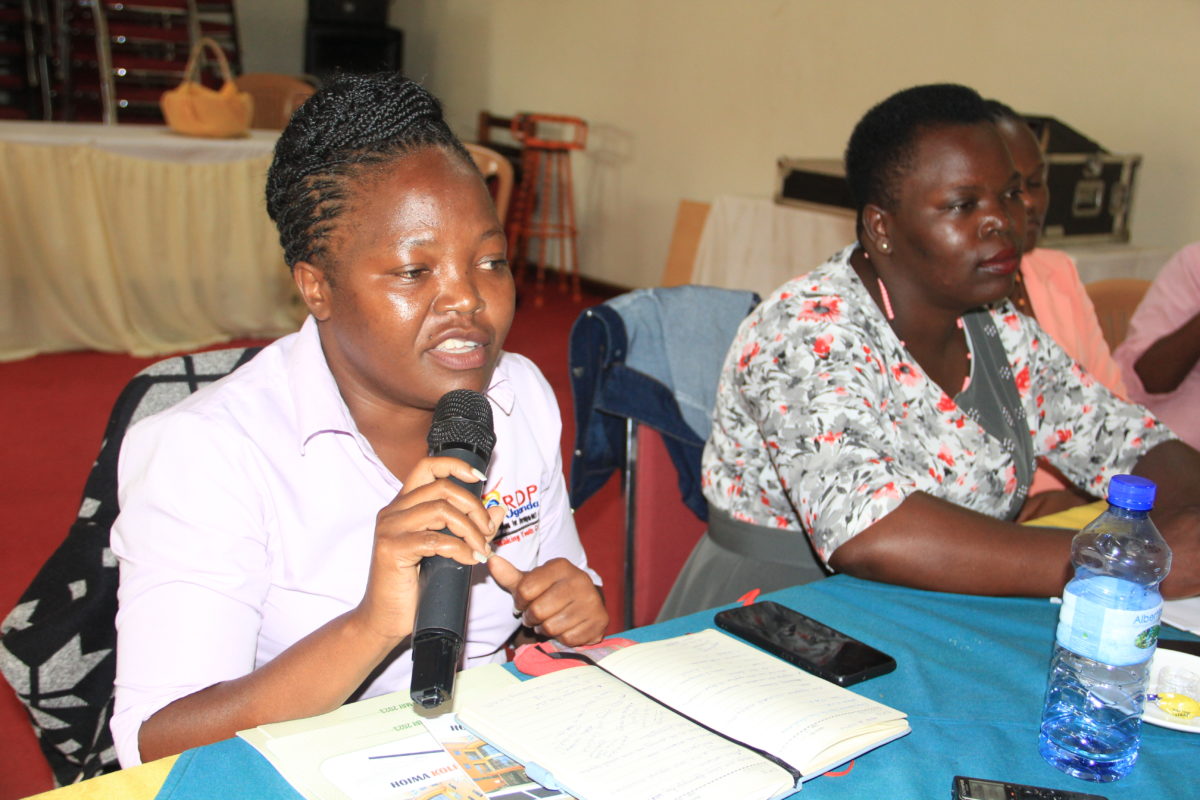Anti-corruption activists have called for innovative approaches if the fight against corruption – a vice that has consistently bedeviled Uganda in recent years – is to register some significant wins.
Mindful of the pervasive nature of corruption and its detrimental effects on society, the activists argue that there is need for a multifaceted approach aimed at promoting transparency, accountability, and ethical governance at all levels.
“Corruption has become a culture and part of our everyday life – a culture where people are obsessed with getting rich in a short time without the required sacrifice, integrity and hard work,” Marlon Agaba, the Executive Director of the Anti-Corruption Coalition of Uganda-ACCU https://accu.or.ug/, told The Albertine Journal. “We need to change that culture and redefine the norms.”
Agaba, who was speaking on November 15 during a regional dialogue that was held at the Kolping Hotel in Hoima City ahead of the International Anti-Corruption Day that was celebrated on December 9 at Golf Course Hotel in Kampala, also called for leadership from up to bottom, noting that interventions without good leadership cannot yield much.
This year’s International Anti-Corruption Day was celebrated under the theme, “Strengthening partnerships in the war against corruption”.
The November 15 dialogue, which aimed at bringing together citizens and leaders for a candid discussion on corruption and accountability, was organised by ACCU in partnership with the Mid-Western Anti-Region Corruption Coalition (MIRAC) – all of which are at the forefront of the fight against corruption in the country.
This comes at a time when corruption remains a persistent challenge in Uganda, with the Kampala leadership being accused of inaction to deal with it even as it hinders economic development and erodes public trust in government institutions.
The experts accused government institutions mandated to fight corruption, such as the Inspectorate of Government (IG) and State House Anti-Corruption Unit (SHACU), for not researching on corruption for the last decades – which has subsequently made these institutions ineffective in executing their work.
“They are simply chasing shadows, which explains why we also need to change our methods of fighting corruption,” one activist said.
For his part, Agaba said it’s the current leadership that has created an enabling environment for corruption to thrive.
“If the head of the family is thief, or if a church pastor is adulterous, their followers will follow suit. We need leaders who are committed to imposing government policies – such as the zero tolerance to corruption – and not just the usual way of treating cancer with panadol tablets as the illness persists,” he added.
Moses Kirya, Masindi district’s Speaker, castigated councils and civil society organisations for not using their powers to challenge corruption.
Semi-literate politicians
Kirya heaped blame on the electorate for voting for semi-literate politicians who cannot interpret policies written in English and hold technocrats accountable.
For instance, while the district auditor is supposed to report to the district speaker, they often times report to the Chief Administrative Officers (CAOs) under the pretext that they are civil servants which, in the end, leads to failure to properly check the misuse of offices and funds, Kirya said.
“Whenever you hear noisy arguments in councils, just know that the council is performing well and in most cases it’s full of educated people,” he said.
In light of the above, he urged the electorate to always ensure that they vote for educated people, just like it’s done in Masindi, where the district’s audits are usually challenged by councilors because they are educated and civically competent. The council’s competence has in the past led to CAOs being summoned by the Parliamentary Accounts Committee, he said.
Kirya also cited the example where the Masindi district council has in the past rejected relatives, campaign agents and a Reverend from being appointed by the district chairperson on the service commission until other people were appointed on merit.
Kirya said there is need for serious induction of citizens, councils and civil society on separation of powers since ignorance of the law stifles the fight against corruption.
“We need to bring people with integrity in councils. The quality of public accounts committees should also be checked. We need to appoint accountants of different organisations in civil society who are not answerable to CAOs,” he added.
Go for ‘small fish’ as well
Barbra Anyango Wabwire, a monitoring and evaluation officer at the Recreation for Development and Peace (RDP), said that there is need to drop the notion of getting the “big fish” yet it is the “small fish” at lower levels that are the most corrupt.
“My grandmother doesn’t know the district engineer or the CAO, but knows the parish chief as the big fish – and yet the law and people look at the former as the big fish. You have heard parish chiefs who have made ghost groups in the Parish Development Model. And if the services at lower health centres are poor, it’s not the big fish but those small fish to blame,” Wabwire added.
Daisy Nakyanzi, the Executive Director for Kikuube Education Initiative (KED), suggested that now that the archaic methods that are being used in the fight against corruption have not yielded the much-needed results, this necessitates a new “hook and thread”. During the dialogue, the activists agreed that there is need to create strong synergies amongst stakeholders, including media, civil society, politicians and the private sector

